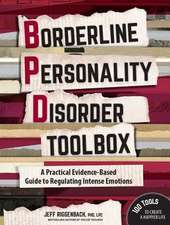Global Conflict Resolution Through Positioning Analysis: Peace Psychology Book Series
Editat de Fathali M. Moghaddam, Rom Harré, Naomi Leeen Limba Engleză Hardback – 9 noi 2007
This volume applies positioning theory in order to achieve a fuller and more in-depth understanding of conflict and its psychological resolution. The editors approach positioning from the micro (interpersonal) level all the way to the macro (intergroup and international) level.
| Toate formatele și edițiile | Preț | Express |
|---|---|---|
| Paperback (1) | 697.82 lei 6-8 săpt. | |
| Springer – 19 noi 2010 | 697.82 lei 6-8 săpt. | |
| Hardback (1) | 647.92 lei 6-8 săpt. | |
| Springer – 9 noi 2007 | 647.92 lei 6-8 săpt. |
Din seria Peace Psychology Book Series
- 18%
 Preț: 779.26 lei
Preț: 779.26 lei -
 Preț: 361.05 lei
Preț: 361.05 lei - 15%
 Preț: 639.25 lei
Preț: 639.25 lei - 18%
 Preț: 788.54 lei
Preț: 788.54 lei - 15%
 Preț: 699.28 lei
Preț: 699.28 lei - 15%
 Preț: 646.62 lei
Preț: 646.62 lei - 18%
 Preț: 1690.13 lei
Preț: 1690.13 lei - 15%
 Preț: 645.28 lei
Preț: 645.28 lei - 24%
 Preț: 1044.84 lei
Preț: 1044.84 lei - 18%
 Preț: 945.14 lei
Preț: 945.14 lei - 15%
 Preț: 649.54 lei
Preț: 649.54 lei -
 Preț: 386.39 lei
Preț: 386.39 lei - 15%
 Preț: 697.82 lei
Preț: 697.82 lei - 15%
 Preț: 591.14 lei
Preț: 591.14 lei - 18%
 Preț: 1222.94 lei
Preț: 1222.94 lei - 15%
 Preț: 644.82 lei
Preț: 644.82 lei - 15%
 Preț: 649.22 lei
Preț: 649.22 lei - 15%
 Preț: 697.65 lei
Preț: 697.65 lei -
 Preț: 388.72 lei
Preț: 388.72 lei - 15%
 Preț: 647.08 lei
Preț: 647.08 lei - 24%
 Preț: 967.02 lei
Preț: 967.02 lei - 15%
 Preț: 638.89 lei
Preț: 638.89 lei - 15%
 Preț: 650.37 lei
Preț: 650.37 lei - 18%
 Preț: 733.15 lei
Preț: 733.15 lei -
 Preț: 398.74 lei
Preț: 398.74 lei - 15%
 Preț: 644.30 lei
Preț: 644.30 lei - 18%
 Preț: 1116.57 lei
Preț: 1116.57 lei -
 Preț: 365.05 lei
Preț: 365.05 lei - 15%
 Preț: 643.99 lei
Preț: 643.99 lei - 18%
 Preț: 1116.26 lei
Preț: 1116.26 lei - 18%
 Preț: 1381.26 lei
Preț: 1381.26 lei - 18%
 Preț: 1595.75 lei
Preț: 1595.75 lei - 18%
 Preț: 779.89 lei
Preț: 779.89 lei
Preț: 647.92 lei
Preț vechi: 762.26 lei
-15% Nou
Puncte Express: 972
Preț estimativ în valută:
123.98€ • 129.77$ • 103.19£
123.98€ • 129.77$ • 103.19£
Carte tipărită la comandă
Livrare economică 31 martie-14 aprilie
Preluare comenzi: 021 569.72.76
Specificații
ISBN-13: 9780387721118
ISBN-10: 0387721118
Pagini: 302
Ilustrații: XIV, 302 p.
Dimensiuni: 156 x 235 x 19 mm
Greutate: 0.63 kg
Ediția:2008
Editura: Springer
Colecția Springer
Seria Peace Psychology Book Series
Locul publicării:New York, NY, United States
ISBN-10: 0387721118
Pagini: 302
Ilustrații: XIV, 302 p.
Dimensiuni: 156 x 235 x 19 mm
Greutate: 0.63 kg
Ediția:2008
Editura: Springer
Colecția Springer
Seria Peace Psychology Book Series
Locul publicării:New York, NY, United States
Public țintă
ResearchCuprins
The Concept of Positioning.- Positioning and Conflict: An Introduction.- Intergroup Positioning and Power.- Liquidating Roles and Crystallising Positions: Investigating the Road Between Role and Positioning Theory.- Intrapersonal Conflict.- Interpersonal Positioning.- Positioning and Conflict Involving a Person with Dementia: A Case Study.- The Research Planning Meeting.- Standing Out and Blending in: Differentiation and Conflict.- The Dispute Over the Fate of Terri Schiavo: A Study of Positions and Social Episodes in the Formation of Identity.- Intergroup Positioning.- How Disadvantaged Groups Members Position Themselves: When They Might Appear to Work Against an Improvement in Status for Their Own Group.- Wheels Within Wheels, or Triangles Within Triangles: Time and Context in Positioning Theory.- Positioning and Military Leadership.- Discursive Production of Conflict in Rwanda.- Rwandan Radio Broadcasts and Hutu/Tutsi Positioning.- Nuclear Positioning and Supererogatory Duties: The Illustrative Case of Positioning by Iran, the United States, and the European Union.- Conceptual Frame for a Psychology of Nonviolent Democratic Transitions: Positioning Across Analytical Layers.- Conclusion and Glossary.- Afterword.
Recenzii
From the reviews:
"Positioning analysis generally examines the unfolding of conflicts through positions, story lines, and actions. … Psychologists and others interested in both inductive analyses and processes on recognizing cycles of oppression and then transforming such into testable hypotheses at the individual and group level should read this book, test its theses, and then properly confirm or disconfirm its assertions. Those just interested in considering the distinct possibility that Moghaddam and company are correct should also read this book." (Jesus (Jess) Aros and Lapde So, PsycCRITIQUES, Vol. 53 (37), September, 2008)
"Positioning analysis generally examines the unfolding of conflicts through positions, story lines, and actions. … Psychologists and others interested in both inductive analyses and processes on recognizing cycles of oppression and then transforming such into testable hypotheses at the individual and group level should read this book, test its theses, and then properly confirm or disconfirm its assertions. Those just interested in considering the distinct possibility that Moghaddam and company are correct should also read this book." (Jesus (Jess) Aros and Lapde So, PsycCRITIQUES, Vol. 53 (37), September, 2008)
Textul de pe ultima copertă
Positioning analysis penetrates beneath surface issues to their underlying psychological causes and social effects, with the intention of defusing conflict and preventing existing conflict from escalating. As the growing literature shows, positioning analysis methods are not only effective in interpersonal and intergroup problems, but have considerable potential for resolving disputes on the world stage. Global Conflict Resolution through Positioning Analysis starts with the daily disputes that result from our multiple social identities and evolving self-definitions, offers a new framework for understanding historical conflict, and brings vital new perspectives to current political and ideological battles. Twenty expert contributors examine scenarios as simple as a committee meeting of four people, as complicated as centuries-old social movements and the shifting tensions in the Middle East.
- Who speaks for Terri Schiavo?: a study in mutual hostility.
- Lawrence and Napoleon: military positioning, in victory and defeat.
- For and/or against one’s best interests?: a minority paradox.
- "Not the person I used to know": positioning in a case of dementia.
- Rwanda: the view from both sides of genocide.
- The nuclear edge: positioning by Iran, the European Union, and the U.S.
Caracteristici
Chapters will explore interpersonal, intergroup, and international applications of positioning theory Draws from the increasing research and literature on positional theory to focus on topics of current national and international interest, including conflicts in Rwanda, Iran, the European Union, and the United States

























